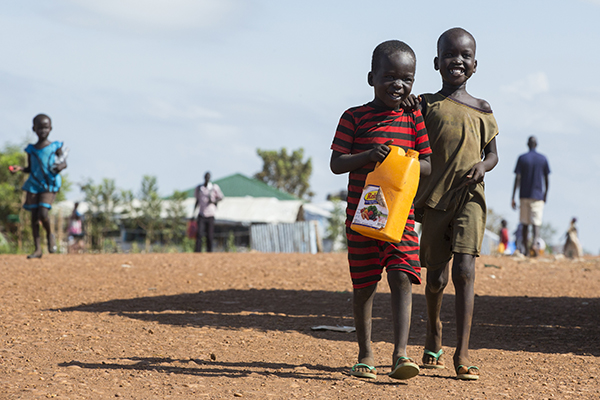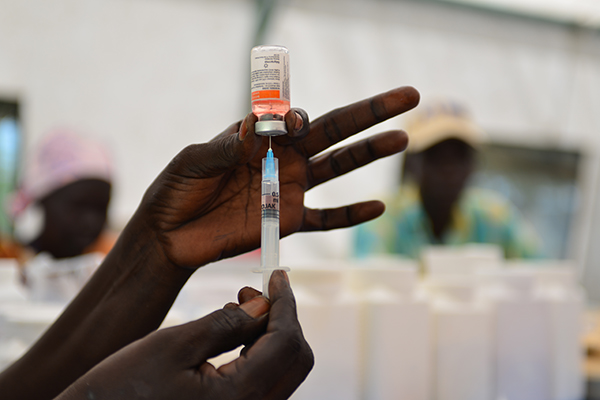
Children at the Protection of Civilians (POC) Site 3 in Juba, which is run by the UN Mission in South Sudan (UNMISS).
For the last three years, immunization activities have stopped because of the fighting. When immunization rates fall, a reservoir of unvaccinated children builds up and a few cases of a disease like measles can quickly evolve into an outbreak with thousands of people infected. And, that is exactly what is happening in South Sudan.
Measles is the most contagious disease the world has known and the only way to stop the cases from occurring is to vaccinate the majority of the population or for the disease to spread from person to person until everyone has been infected. Just last week, a child arrived at a refugee camp with a suspected case of measles. This child who has had to endure so much is now suffering through pain, fever, rash, eye infections, and faces additional health complications. All the while, a safe, affordable, and effective vaccine has been around for over fifty years.
So far this year, there have been 1,375 suspected cases of measles in South Sudan– this is more than double the number of cases they had in 2015. Most of the measles cases have been in camps for internally displaced people where families are living in overcrowded conditions and many of the children are malnourished. This is when measles can become deadly or lead to complications like blindness.

A health worker fills a syringe with measles vaccine from a vial, in an immunization tent at a clinic run by the international humanitarian organization Concern, a UNICEF partner, at the Protection of Civilians site on the United Nations peacekeeping mission in South Sudan (UNMISS) base in the city of Malakal, capital of Upper Nile State.
Our partners at UNICEF and the World Health Organization are on the ground and eager to vaccinate children to stop these cases from spreading. But, funding gaps have meant that they aren’t able to quickly respond and hold large immunization campaigns to reach every child with measles vaccines.
The South Sudanese people have had to endure through so much suffering. Much of the conflict is incredibly complex and there are few easy solutions. But, getting access to a safe vaccine should not be part of that challenge. In July, donations to Shot@Life will support children getting access to measles vaccines in places like South Sudan and you can use the power of your signature to tell President Obama that you support increased funding for measles vaccines.
